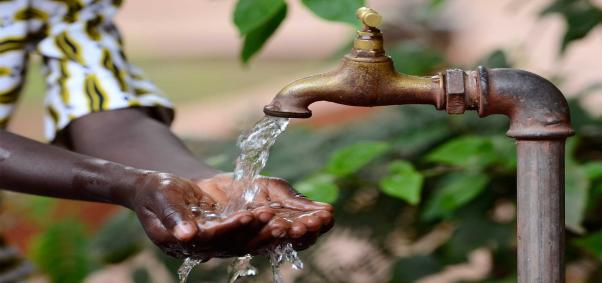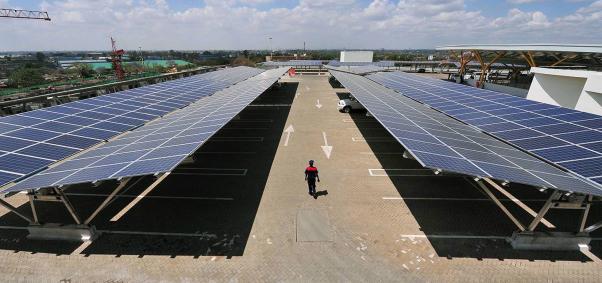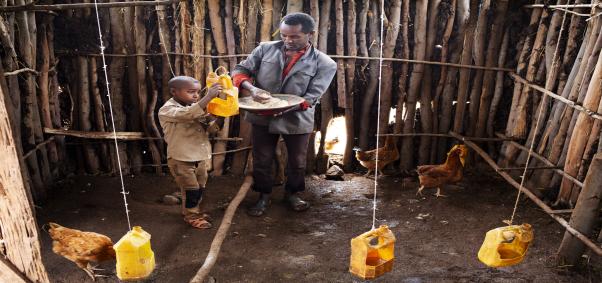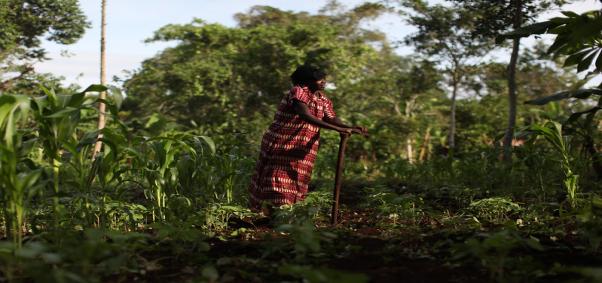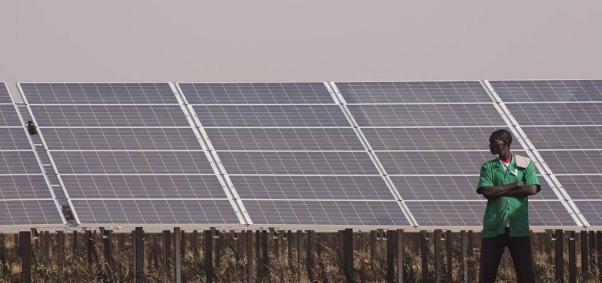
By Carlos Lopes
This article was originally published in Newsweek.
Carlos Lopes is a professor at the Mandela School of Public Governance at the University of Cape Town, High Representative of the African Union for partnerships with Europe post-2020, and a member of the Global Commission on the Economy and Climate.
The world faces simultaneous challenges with the COVID-19 pandemic: economic downturn and increasing impacts of climate change, all of which are exacerbating ongoing global inequity. Full economic recovery hinges upon the world's ability to address these interconnected challenges everywhere.
World leaders have committed nearly $13 trillion to address COVID-19 and economic crisis, and even in the midst of the pandemic, many are continuing to step up climate action. This reveals a growing realization that there are clear benefits to combating climate change alongside enacting economic recovery. The massive amount of public spending could contribute to building a more inclusive, resilient and sustainable world.
The Biden administration plans to play a critical role in moving global low-carbon recovery forward. As part of this agenda, the United States must re-engage with Africa on climate diplomacy and ambition, including pushing for more public financing for green African development and building trade partnerships that boost green industrialization.
Africa should highlight its desire for climate action to enhance its development. There is power in global partnership and both Africa and the U.S. would benefit immensely from a shared vision for a more resilient, low-carbon future.
The COVID-19 pandemic exposed glaring global inequities. In Africa, it caused a continent-wide economic slowdown and exacerbated disproportionate climate vulnerability. The continent is being left behind due to poor vaccine access and limited economic stimulus capacity. This has not reduced African countries' resilience and commitment toward a climate transition.
Nigeria allocated $620 million for solar home systems in 5 million households and committed to fund women-owned businesses. Ethiopia is working on a $2.79 million project to improve water resources, create 1,500 jobs and generate new wealth streams for 150,000 households.
Africa is ripe to leapfrog into green industrial and technological development. But international finance will be critical to support Africa's efforts to shift toward this new climate economy.
We can expect to see more substantive U.S. engagement in Africa.
President Biden intends to re-establish financing for the U.N.'s Green Climate Fund, starting with the $2 billion outstanding from the 2014 U.S. pledge. He also promised to re-orient U.S. development institutions toward advancing clean energy transformation, ensuring that the U.S. International Development Finance Corporation and the U.S. Export-Import Bank phase out support for fossil fuels while ramping up finance for climate action.
While there are several other countries working toward green recovery, few have established equal partnerships that promote Africa's green development.
The European Union–Africa's main trade partner–made the European Green Deal a core piece of their COVID-19 recovery. Some EU policies may burden Africa with additional hurdles to trade, such as the planned Carbon Border Adjustment Tax on exports from countries with lower emissions reductions goals than the EU. The Biden administration has an opportunity to avoid such consequences and build a partnership that truly works toward benefiting all.
In addition to increasing U.S. support for climate solutions in Africa, the Biden administration can leverage its influence to encourage other countries to do the same. Developed countries have not yet been able to convincingly demonstrate that the $100 billion per year they committed to raise in climate finance per year from 2020 is forthcoming. Public finance is essential.
Sustainable infrastructure investments will lay a foundation for stronger and more rapid development and attract private investment, but it needs some up-front financing.
There is rapidly growing concern among developing countries that needed public finance is not forthcoming, leading to a breakdown in trust which may hamper the broader agenda of the United Nations Climate Change presidency if not addressed quickly and decisively.
The Biden administration has an opportunity to regain credibility by engaging openly with developed and emerging economies to step up climate finance commitments. African leaders must have a seat at the table to discuss these issues. This is an opportunity for them to make clear how they would like to see the U.S. mobilize and allocate what will inevitably be limited public financial resources for battling climate change and achieving sustainable development goals.
Africa's push for green COVID-19 recovery can also make U.S.-Africa trade greener. New trade partnerships are needed to ensure Africa has a prominent place in supply chains for 21st century technologies, including those that will help fight the climate crisis, enhance food security and build resilience.
The Biden administration should invest in new sustainable supply chains in partnership with African countries. This also provides the opportunity for the U.S. to engage with the landmark African Continental Free Trade Area, which could bolster African economies, lower the burden of negative trade balances and climate-related asset stranding and provide the U.S. access to trade with the entire African Union.
There is immense opportunity for the U.S. and Africa to work together on low-carbon economic recovery and enhanced climate ambition. In doing so, both can lead by example through new trade partnerships and setting the stage for a comprehensive public finance agenda ahead of November's COP26.
After a turbulent period, we must come together in equal partnership to address the challenges we all face.

